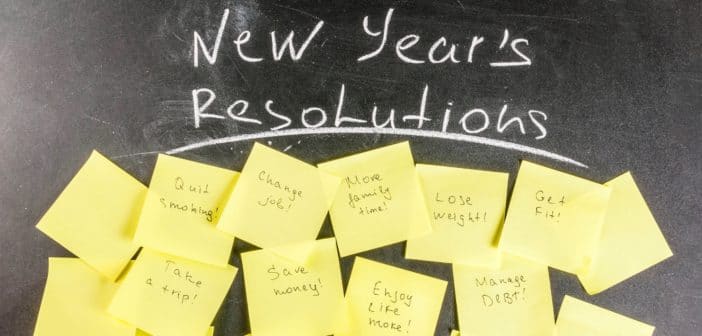 January is just around the corner and people all over the country are trying to think of the ways that they can improve themselves during 2018. If you’re newly in recovery you might be invigorated, eager to seize everything that is available to you during your first full year of sobriety. However, it might be a good idea to temper that excitement with a dose of reality.
January is just around the corner and people all over the country are trying to think of the ways that they can improve themselves during 2018. If you’re newly in recovery you might be invigorated, eager to seize everything that is available to you during your first full year of sobriety. However, it might be a good idea to temper that excitement with a dose of reality.
“New Year’s resolutions are inherently overdone by our society,” says Rae Oakley, a therapeutic intern at Maple Mountain Recovery, a trauma-informed treatment center outside of Salt Lake City. “We choose things that are bigger than what we can realistically achieve.”
That can be especially dangerous for people who are newly sober.
“If you’re in early recovery you have a lot of stuff on your plate already,” Oakley says. “The danger of being in that highly motivated state is that people tend to over do it. When it’s not achievable that adds to their sense of failure and to those negative core beliefs that patients have about themselves.”
Instead of setting New Year’s resolutions, Oakley recommends that clients and alumni at Maple Mountain Recovery create action plans that can help them work toward specific goals. Action plans encourage people to craft goals in a way that makes them achievable and realistic, setting you up for success (and the confidence boost that comes with it).
What is an action plan?
An action plan is a goal that is broken down into certain steps and parameters.
“Let’s say your New Year’s resolution is to get clean and sober in 2018,” Oakley says. “What does that look like? It’s a really big goal to set.”
Crafting an action plan can make it less daunting.
“An action plan breaks that down into achievable steps that are more easily accomplished,” Oakley says.
The first step in creating your action plan is to think about a goal. It doesn’t have to be for the entire year. In fact, it may be better to set a goal for a week to start with, using the old recovery wisdom of taking things one step at a time. Once you know what you’re working toward you can address the rest of the action plan: how you’re going to achieve your goal, when you will do it by and how confident you are that this will happen.
How will I achieve that goal?
Setting goals is fun, but in order to achieve them you have to be willing to put in the nitty gritty details. Oakley recommends that once people have a goal they put a definitive time frame on that and ask themselves how often they’re going to work on it.
“Set solid parameters,” Oakley says. For example, if your goal is to stay sober for a week, your “how” might include details like attending meetings on Monday, Wednesday and Friday, or calling your sponsor twice during the week.
When will I do it by?
Having a time frame is important to success, and looking at the entire year can be daunting, especially for people who are early in recovery.
“When a person gets overwhelmed they’re not able to keep their goals,” Oakley says.
Begin by setting very short-terms goals. There is nothing to be ashamed of in that!
“Concentrate on a short amount of time. Make an action plan for today, for this week,” Oakley says. “When you add a bunch or days and weeks it adds up to that whole year of recovery and sobriety.”
How confident am I that I can achieve this?
Achieving your goals builds your confidence and helps reinforce the positive changes that you are making in your life, so you want to make sure you’re setting realistic expectations for yourself. Once you’ve put together your action plan honestly ask yourself how confident you are that you can follow through on it. If you’re not at least a 7 or 8 on a scale of 10, reevaluate your plan and tweak it until you’re certain it’s achievable.
“It’s not helpful to set a goal and then not be able to achieve it,” Oakley says. “By increasing your likelihood of success, you’re more apt to achieve your goal, set more goals and keep moving forward.”
If you have a sponsor, he or she can help you evaluate how realistic your goal is.
Putting it all together.
Once you have your action plan, write it down and post it somewhere you’ll see it often.
“When you write it down it becomes real,” Oakley says. “When it’s in your head it just stay there and doesn’t have the same power.”
It’s okay to have two action plans running at the same time, but in order to maintain your focus Oakley recommends not having more than that.
If you’re looking for motivation this new year, consider getting yourself a sponsor, attending 30 meetings in 30 days, or finding a job. An action plan can help you achieve all of those goals and start 2018 on the right foot, without the pressures of New Year’s resolutions.
Maple Mountain Recovery is a trauma-informed addiction treatment center in Mapleton, Utah. Learn more about their program at https://www.maplemountainrecovery.com/ and follow them on Facebook
Sponsored DISCLAIMER: This is a paid advertisement for California Behavioral Health, LLC, a CA licensed substance abuse treatment provider and not a service provided by The Fix. Calls to this number are answered by CBH, free and without obligation to the consumer. No one who answers the call receives a fee based upon the consumer’s choice to enter treatment. For additional info on other treatment providers and options visit www.samhsa.gov.




